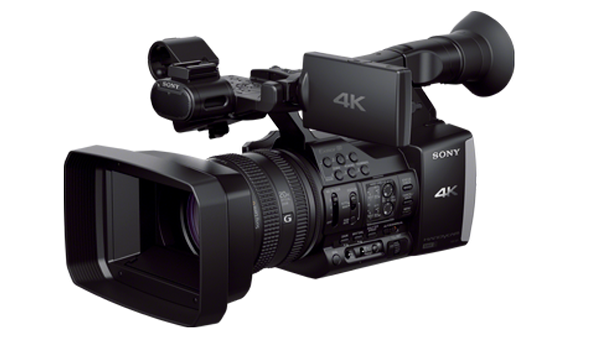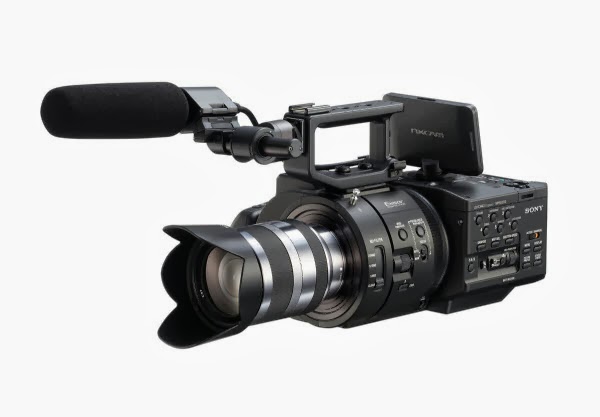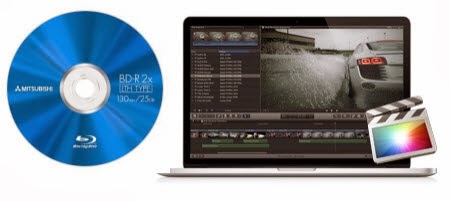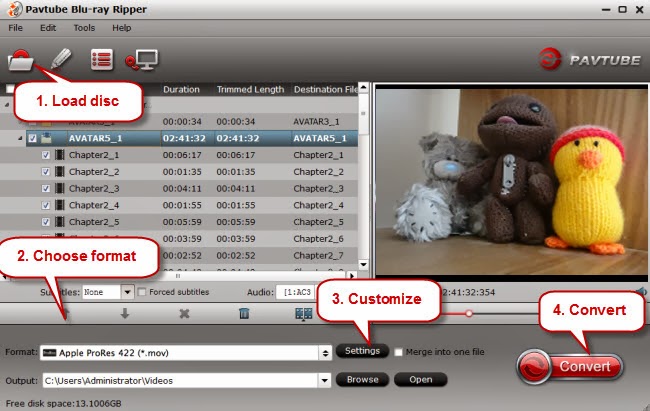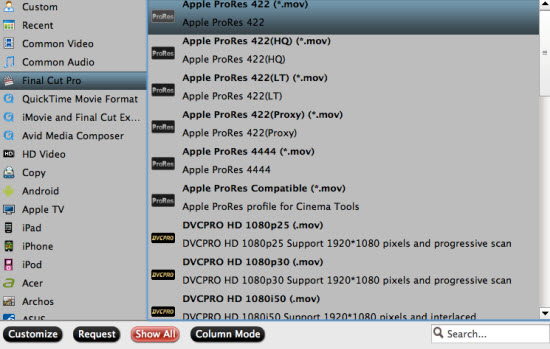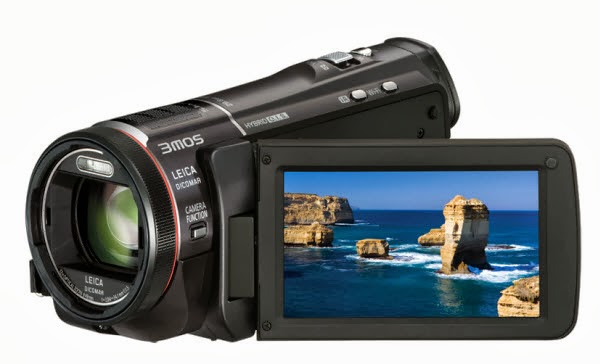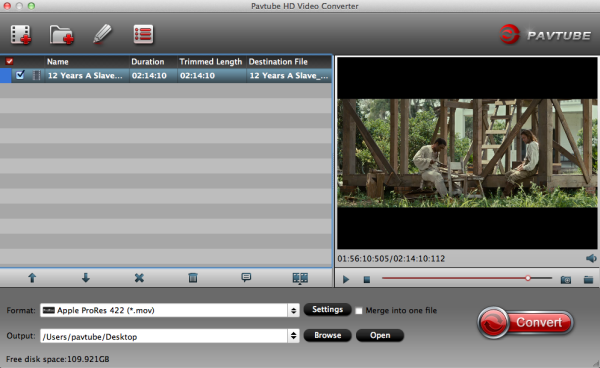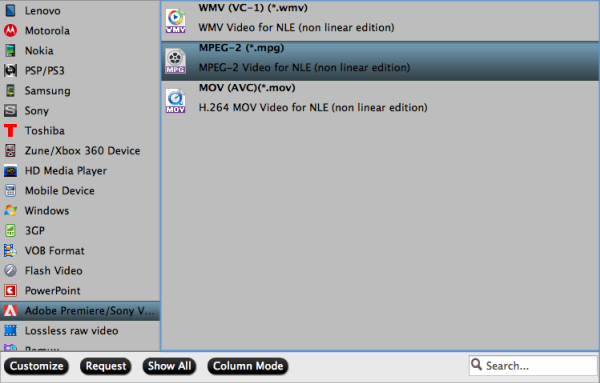Summary: Have got a Sony Cybershot DSC-RX100 and have issues with importing movies from RX100 into iMovie. Is there any solution? Just convert MTS video to AIC .mov for iMovie for editing on Mac.
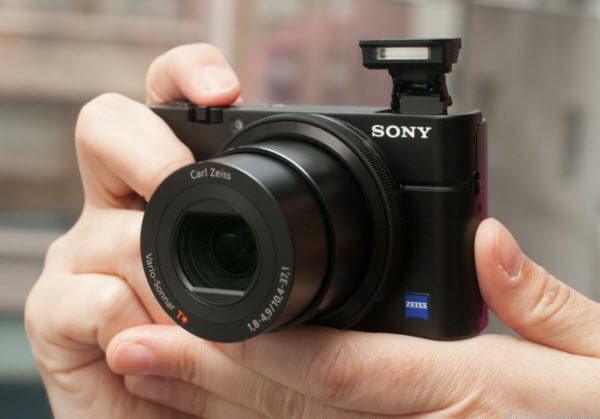
If you are planning to buy a mid-range HD camera, RX100 could be a smart choice. It is an enthusiast compact camera features with 1080 60p or 1080i video capture in AVCHD format. However, AVCHD is not friendly with iMovie, many users encounter the problem when transferring RX100 AVCHD MTS files to iMovie.
Q1: iMovie cannot import movies from the RX100. Anyone has a work around?
Q2: I'm using iMovie, and I'm trying to import the video from my camcorder (Sony RX100). But when I clicked the camera button, iMovie crashes. Why I can not import the clips to iMovie directly? Am I missing something? Pls help me!
Q3: I have a Macbook with Mac OS X installed. I have installed iLife 09. I have just bought a sony rx100. I can download the photos but I am unable to open mts in iMovie. They are in MTS format (AVCHD). Is there any software which I can import mts files to imovie?
What's the problem? And then how to realize this goal for native editing RX100 1080/60p mts in iMovie? Since Apple hasn't added full supported to the 1080/60p mts recordings within iMovie, and you have to change MTS videos to iMovie acceptable AIC .mov format. This is the best Sony RX100 1080/60p AVCHD to iMovie Solution.
Hot Search: Canon MTS to iMovie | VOB to iMovie | H.264 to iMovie
For this case, a professional Sony MTS to iMovie application - Pavtube MTS/M2TS Converter for Mac comes to help you which is your first choice to transcode Sony RX100 1080/60p AVCHD footages to AIC MOV for iMovie. Here is a step-by-step tutorial for your to figure out your Sony RX100 MTS/M2TS iMovie problem:
Notes: Free MTS/M2TS Converter for Mac you can also have a try!
Preparations
1. Copy your MTS videos from Sony RX100 to Apple hard drive.
2. Free Download the best MTS to iMovie Converter on Mac, install and launch it.
Brief Steps
Step 1. Drag and Drop source MTS videos to Sony MTS to iMovie Converter. Or click "Add Video" to import the mts footage from RX100.
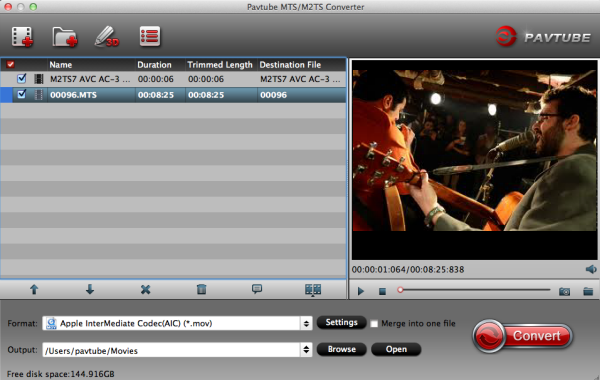
Step 2. Set up output format for AVCHD to iMovie Conversion.
From "Format" list, choose "iMovie and Final Cut Express > Apple InterMediate Codec (*.mov)" for editing in iMovie smoothly.
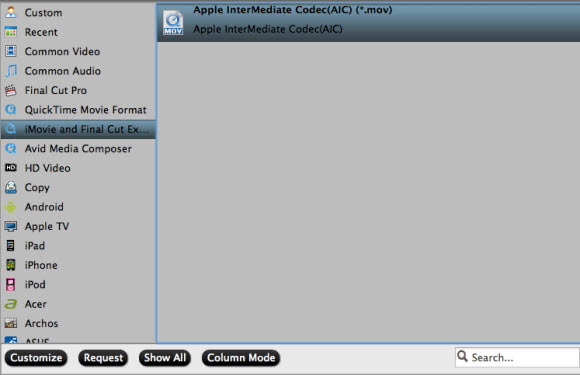
Step 3. Press the big "Convert" button to start transcoding Sony RX100 AVCHD MTS to AIC MOV for using in iMovie. The program adopted advanced audio and video sync technology; never let you troubled by the audio and video issues.
Once finished, click "Open" to get converted MOV videos. Then you could open up iMovie, and go to "File > Import > Movies…" to import converted video files to iMovie.
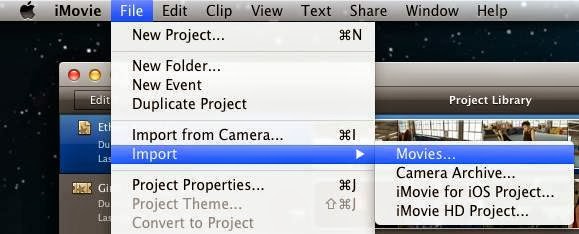
More Tips:
1. If you want to merge multiple MTS files into one for easy editing, please tick the box "Merge into one file" to merge all the imported clips.
2. In case the MTS footage is taken under interlacing mode, just click "Edit" to go to Video Editor, and hit Effect to select the Deinterlacing and interlacing lines will be eliminated. (Checked by default)
Read More:
- How to Solve the freezes when importing MTS media to Premiere CC-2015.3?
- How to Convert MTS/M2TS with Handbrake Easily?
- Best Solution to Play Sony MTS/M2TS Files on MacBook Pro
- Play MTS on Smart TV (Windows and Mac Solutions)
- Top 5 MTS/M2TS Video Editors for Mac
- Top 5 MTS/M2TS Video Editors for Windows (10, 8.1, 8, 7, XP, etc)
- Fix Choppy Issues When Importing AVCHD Files to FCP
- Join and Convert MTS/M2TS Files for playing with VLC Player
- How to Convert 3D AVCHD MTS to 3D Tablet for Watching?
